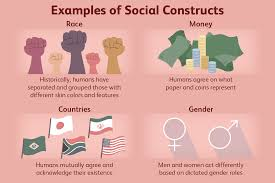Identity & Social Interaction
1/11
There's no tags or description
Looks like no tags are added yet.
Name | Mastery | Learn | Test | Matching | Spaced | Call with Kai |
|---|
No analytics yet
Send a link to your students to track their progress
12 Terms
What is the concept of the Looking-Glass Self?
Mirror of minds makes self.” We become who we think others think we are.
What is Group Polarization in psychology?
Group talk turns up the volume.
Group Polarization is the tendency for people’s attitudes or decisions to become more extreme after discussing them in a like-minded group.
What is Actor–Observer Bias in psychology?
Attribute our own actions to external, situational factors
Attribute others’ actions to internal, personal traits
What’s the difference between prejudice and discrimination?
“Prejudice is mindset, discrimination is action.” What you think vs. what you do.
📌 What is individual discrimination in psychology?
Individual Discrimination refers to unfair treatment directed by one person toward another based on group membership (e.g., race, gender, religion), rather than personal merit.
What is Structural Functionalism in sociology?
“Function feeds the framework.” Each part plays a role in keeping the social machine running as well as equlibrium.
What is Social Constructionism in sociology and psychology?
“Reality is agreed, not absolute.” We build the meaning of things together—not just discover it.

What are attributional biases in psychology?
The common errors in thinking that occur when people attempt to explain their behavior (their own or someone else’s)
What is horizontal mobility in sociology?
“New title, same tier.” The position changes, but the social ladder stays level.
Examples:
Moving from teaching at one school to another
What is exchange mobility in sociology?
“Status swap, not system shift.” People move—but the social map stays the same.
Example: A promotion to manager for one worker coincides with another manager losing their job. The number of managers stays the same, but the individuals have swapped socioeconomic positions.
What is relative poverty in sociology?
“Poor by comparison, not by starvation.” Relative poverty means falling behind socially—even when basic needs are met.
Example: Someone with stable housing and food access may still be considered relatively poor if they can't afford transportation, internet access, or education like their peers.
What is marginal poverty in sociology?
“Paycheck pauses, poverty pulses.” When work is unreliable, survival becomes uncertain.
Example: A worker with sporadic part-time shifts may earn enough in some weeks, but fall below poverty lines during gaps—unable to plan or save reliably.